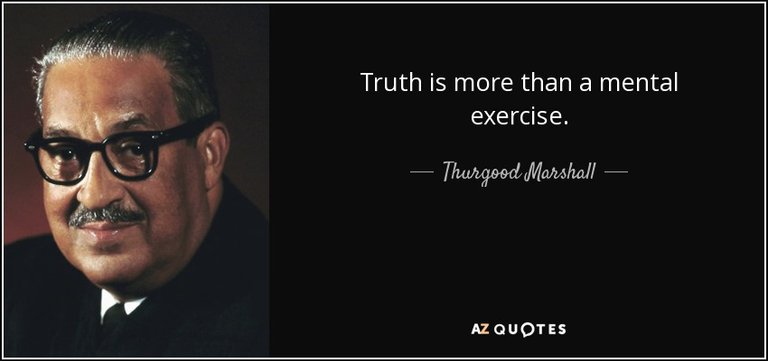On this day in 1967, Thurgood Marshall becomes the first African American to be confirmed as a Supreme Court justice. He would remain on the Supreme Court for 24 years before retiring for health reasons, leaving a legacy of upholding the rights of the individual as guaranteed by the U.S. Constitution.

From a young age, Marshall seemed destined for a place in the American justice system. His parents instilled in him an appreciation for the Constitution, a feeling that was reinforced by his schoolteachers, who forced him to read the document as punishment for his misbehavior. After graduating from Lincoln University in 1930, Marshall sought admission to the University of Maryland School of Law, but was turned away because of the school’s segregation policy, which effectively forbade blacks from studying with whites. Instead, Marshall attended Howard University Law School, from which he graduated magna cum laude in 1933. (Marshall later successfully sued Maryland School of Law for their unfair admissions policy.)
Setting up a private practice in his home state of Maryland, Marshall quickly established a reputation as a lawyer for the “little man.” In a year’s time, he began working with the Baltimore NAACP (National Association for the Advancement of Colored People), and went on to become the organization’s chief counsel by the time he was 32, in 1940. Over the next two decades, Marshall distinguished himself as one of the country’s leading advocates for individual rights, winning 29 of the 32 cases he argued in front of the Supreme Court, all of which challenged in some way the ‘separate but equal’ doctrine that had been established by the landmark case Plessy v. Ferguson (1896). The high-water mark of Marshall’s career as a litigator came in 1954 with his victory in Brown v. Board of Education of Topeka. In that case, Marshall argued that the ‘separate but equal’ principle was unconstitutional, and designed to keep blacks “as near [slavery] as possible.”
In 1961, Marshall was appointed by then-President John F. Kennedy to the U.S. Court of Appeals for the Second Circuit, a position he held until 1965, when Kennedy’s successor, Lyndon B. Johnson, named him solicitor general. Following the retirement of Justice Tom Clark in 1967, President Johnson appointed Marshall to the Supreme Court, a decision confirmed by the Senate with a 69-11 vote. Over the next 24 years, Justice Marshall came out in favor of abortion rights and against the death penalty, as he continued his tireless commitment to ensuring equitable treatment of individuals–particularly minorities–by state and federal governments.
Hi! I am a robot. I just upvoted you! I found similar content that readers might be interested in:
http://www.history.com/this-day-in-history/8/30
it was a good artical
Thanks dear
God always keeps you happy and always sees it rising. This is my medicine
Thanks .. same to you :)